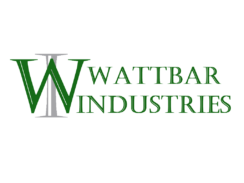Chemical waste is any substance that could endanger human or environmental health. This type of waste also includes substances used to clean up chemical waste spills in a lab.
State and Federal laws do not provide clear guidance on how to properly dispose of chemicals in a lab. However, regulations can vary depending on your geographic location. They also vary depending on the type of waste that you need to dispose of. Lab chemicals can fall into two (2) distinct types:
- Reagent type chemicals – lab chemical inventory which is unused and still in its original container. These types of chemicals would be handled as a ‘lab pack’, where an environmental chemist will properly segregate and package the chemicals for proper transportation and disposal.
- Spent laboratory type wastes – spent chemicals from varying processes (High-performance liquid chromatography (HPLC), analytic testing, spent cleaning agents/solvents, etc.). These types of chemicals must also be stored in an adequate storage container (UN rated) and properly labeled with 1) Initial date spent chemicals are added to the container; 2) Name of chemical or mixture; 3) the words ‘Hazardous Waste’.
Following is an overview of general guidelines that a lab must adhere to properly (and safely) remove and dispose of chemical waste.
Check the Safety Data Sheet
The Occupational Safety and Health Administration (OSHA) requires manufacturers to provide a Safety Data Sheet – formerly known as a Material Safety Data Sheet – for each hazardous chemical sold. This document contains information on a chemical’s properties, any health and environmental hazards it may pose, protective measures you should take when handling the chemical, and safety precautions to take when storing or transporting the chemicals. Follow the guidelines for storing and preparing to dispose of chemicals to protect your workers and the lab from hazardous exposure.
Identify and Label
All chemical reagent containers should be properly labeled. Containers which are not properly labeled will be deemed an ‘unknown’. ‘Unknown’ containers must be identified prior to removal and it can become very expensive if additional testing is required.
Lab wastes (spent materials) should be stored in the appropriate UN rated containers and marked with 1) Initial date spent chemicals are added to the container; 2) Name of chemical or mixture; 3) the words ‘Hazardous Waste’.
Your environmental services provider should be able to assist you in properly managing all your lab waste needs.
Keep Chemicals Separated
Chemicals should never be mixed with other chemicals before disposal. This holds true even if your chemical safety data sheets say both chemicals can be stored or disposed of in the same type of container. It also applies even if you only have very small quantities of many different chemicals to dispose of. If you have space in your lab, you could consider storing small quantities of lab chemicals until each container is full. However, if you choose this route, be sure to note the date you started accumulating the chemical on the container label.
If you need to dispose of rags, mops, and other cleaning supplies that contain a mix of lab chemicals, be sure to consult a waste disposal company. Choose a firm that is familiar with your state regulations for disposing of these items. This point also applies if you need to dispose of items used to hold lab chemicals. Such items include but aren’t limited to syringes, pipettes, and beakers.
Consult Wattbar Industries for Comprehensive Lab Waste Disposal
Your lab is responsible for the proper disposal of lab chemicals even if you hire a third-party service. Even so, hiring a good chemical waste disposal company can save your lab workers a lot of time. Doing so also ensures the waste is disposed of in accordance with local, state, and federal laws. A company that knows how to dispose of chemicals in a lab will not only transport the chemicals to a disposal site but also provide the proper containers and/or package the chemicals appropriately and provide all the required documentation to properly ship them. Furthermore, good companies offer flexible services that won’t interrupt your lab work.
Wattbar Industries offers all the services your lab needs to dispose of any type of chemical waste in compliance with EHS regulations. These include hazardous, regulated non-hazardous, and universal wastes. Wattbar also has an unbeatable track record for offering fast, efficient, and precise services. Get in touch with us to learn more about what we offer or to schedule one-time or regular disposal services.
